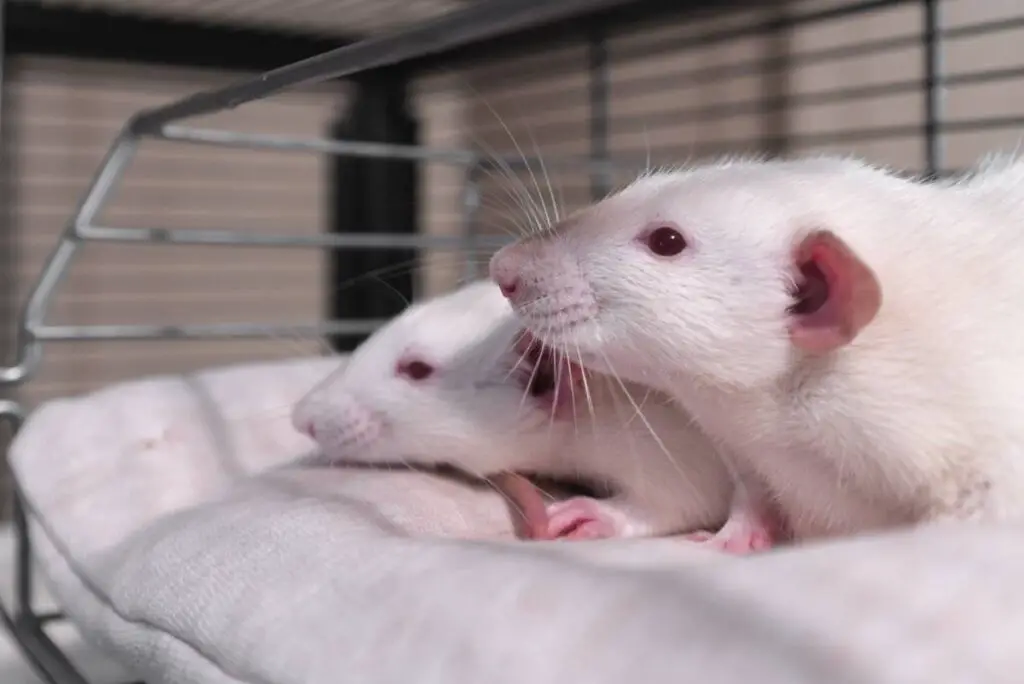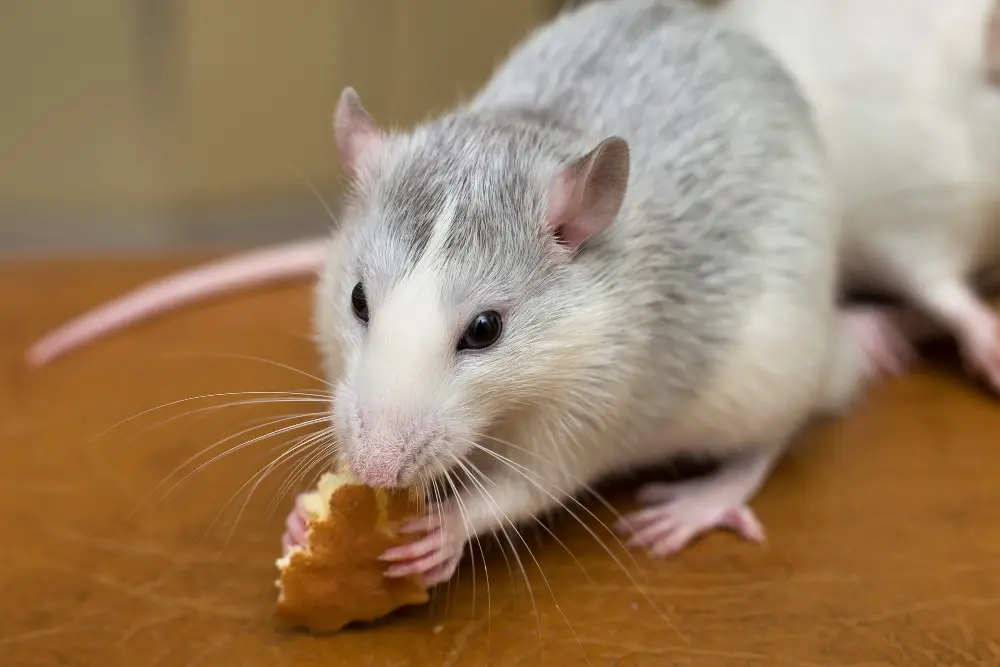Pet rats can make wonderful pets for those who are willing to put in the effort to bond with them. But it can be challenging to get a pet rat to like you, especially if they are timid or anxious.
Luckily, there are a few things that you can do to build trust and develop a strong relationship with your pet rat.
One of the most important things you can do to get your pet rat to like you is to spend quality time with them. This means taking the time to interact with your rat on a daily basis.
You can play with them, offer them treats, and give them plenty of attention and affection. It’s also important to create a quiet and comfortable environment for your rat, as loud noises and sudden movements can cause them to feel scared and anxious.
Building Trust and Bonding
Building trust and bonding with pet rats takes time and patience. It is important to establish a strong bond with your rats to ensure they are comfortable and happy in your presence. Here are some tips to help you build trust and bond with your pet rats.
1. Offering Treats and Rewards
Offering treats and rewards is a great way to build trust with your rats. Make sure to choose healthy options that are safe for your rats to eat. Some good options include small pieces of fruits and vegetables, cooked pasta, and small amounts of cooked meat.
When offering treats, it is important to do so in a calm and gentle manner. This will help your rats feel comfortable and safe around you. It is also important to offer treats consistently to help your rats associate you with positive experiences.
2. Playing and Interacting with Your Rats
Playing and interacting with your rats is another great way to build trust and bond with them. You can play with your rats by providing them with toys and games that stimulate their natural instincts. Some good options include tunnels, toilet paper tubes stuffed with shredded paper or hay, and chew toys.
3. Respecting Your Rats’ Boundaries
Rats are intelligent and social animals that can make great pets. However, they are also sensitive creatures that need time to adjust to new environments and people. To build a strong relationship with your pet rats, it is important to respect their boundaries and give them the space and time they need to feel comfortable.
Recognizing Signs of Stress or Fear
Rats are prey animals and can easily become stressed or frightened by loud noises, sudden movements, or unfamiliar people and animals. It is important to recognize the signs of stress or fear in your rats, which can include:
- Hiding or trying to escape
- Flattening their bodies against the ground
- Rapid breathing or squeaking
- Biting or scratching
- Urinating or defecating
If you notice any of these signs, it is important to stop whatever you are doing and give your rats space and time to calm down. Pushing them to interact with you when they are scared or stressed can damage your relationship and make it harder for them to trust you in the future.
How to Get Your Rat to Cuddle
Pet rats are known for their friendly and social nature. They love to play and interact with their owners, and cuddling is one of the best ways to bond with your pet rat. However, not all rats are naturally cuddly, and it may take some effort on your part to get your rat to snuggle up with you. Here are some tips on how to get your rat to cuddle:
1. Give Them Space
Before you can start cuddling with your rat, you need to make sure they are comfortable around you. Give your rat plenty of space and time to get used to your presence. Spend time near their cage, talking to them and offering them treats. Once they are comfortable with you being around, you can start playing with them in a rat playpen.
2. Use Treats
Rats love treats, and they can be a great way to encourage them to cuddle with you. Offer your rat a treat while you are holding them, and they will start to associate you with positive experiences.
3. Be Patient
Getting your rat to cuddle with you may take some time and patience. Some rats are naturally more cuddly than others, and it may take some time for your rat to warm up to you. Be patient and consistent in your efforts, and don’t force your rat to cuddle if they are not comfortable with it.
4. Be Gentle
Rats are delicate creatures, and it’s important to be gentle when handling them. Use both hands to pick up your rat, and support their body so they feel secure. Avoid sudden movements or loud noises that could startle your rat and make them less likely to cuddle with you.
What Treats Do Rats Like?
Pet rats love treats just like any other animal. Treats can be used as a way to reward good behavior, provide nutrition, and strengthen the bond between rat and owner. Here are some treats that rats tend to enjoy:
- Fruits and vegetables: Rats love fruits and vegetables, especially those that are sweet. Some examples of fruits and vegetables that rats enjoy include apples, bananas, grapes, carrots, and broccoli. It’s important to note that rats should not be given citrus fruits or any other acidic fruits as they can cause mouth sores.
- Protein: Rats are omnivores and need protein in their diet. Some examples of protein that rats enjoy include cooked chicken, boiled eggs, and cooked fish. Rats can also be given small amounts of cheese, but it should not be a regular part of their diet as it is high in fat.
- Treats made specifically for rats: There are many commercially available treats that are made specifically for rats.If you want to make it more challenging for your rat to get the treat, you can use a treat ball. This will keep your pet entertained for hours, stimulating both their mental and physical activity.
When giving rats treats, it’s important to remember that they should be given in moderation. Treats should never replace their regular diet, and should only be given as a supplement.
Why Don’t My Pet Rats Like Me?
Pet rats can be delightful companions, but sometimes, despite the owner’s best efforts, they don’t seem to like their human caretaker. This can be a frustrating and disheartening experience for rat owners who want to bond with their pets. Here are some reasons why a pet rat may not be warming up to its owner:
1. Lack of Socialization
Rats are social creatures, and they need plenty of socialization to be happy and healthy. If a rat has not been properly socialized, it may be shy or fearful around humans. This can be especially true for rats that were not handled frequently as babies. In this case, it may take some time and patience to gain the rat’s trust.
2. Lack of Trust
Trust is an essential component of any relationship, including the one between a pet rat and its owner. If a rat has been mistreated or mishandled in the past, it may be hesitant to trust humans again. It’s important to treat rats with kindness and respect, and to avoid any actions that could be perceived as threatening or aggressive.
3. Boredom or Neglect
Rats are intelligent and curious animals, and they need plenty of stimulation and enrichment to thrive. If a rat is bored or neglected, it may become disinterested in interacting with its owner. Providing plenty of toys, hiding places, and opportunities for play can help keep rats mentally and physically stimulated.
How Long Does It Take for Pet Rats to Get Used to You?
The bonding process between a pet rat and its owner can take anywhere from a few days to a few weeks, depending on the personality of the pet rat.
The first step in bonding with a new pet rat is to give them space and time to adjust to their new surroundings. Moving to a new home can be stressful for rats, and they need time to explore their new environment and get comfortable.
Once the pet rat has settled in, it is time to start the bonding process. Spend time with them every day, talking to them in a quiet and friendly voice, and offering them treats. It is essential to be patient and gentle with them, as they may be nervous or scared at first.
During the bonding process, it is important to let the pet rat take the lead. If they seem hesitant or scared, back off and give them more time to get used to you. If they are comfortable with you, they may climb onto your hand or shoulder and even fall asleep with you.



